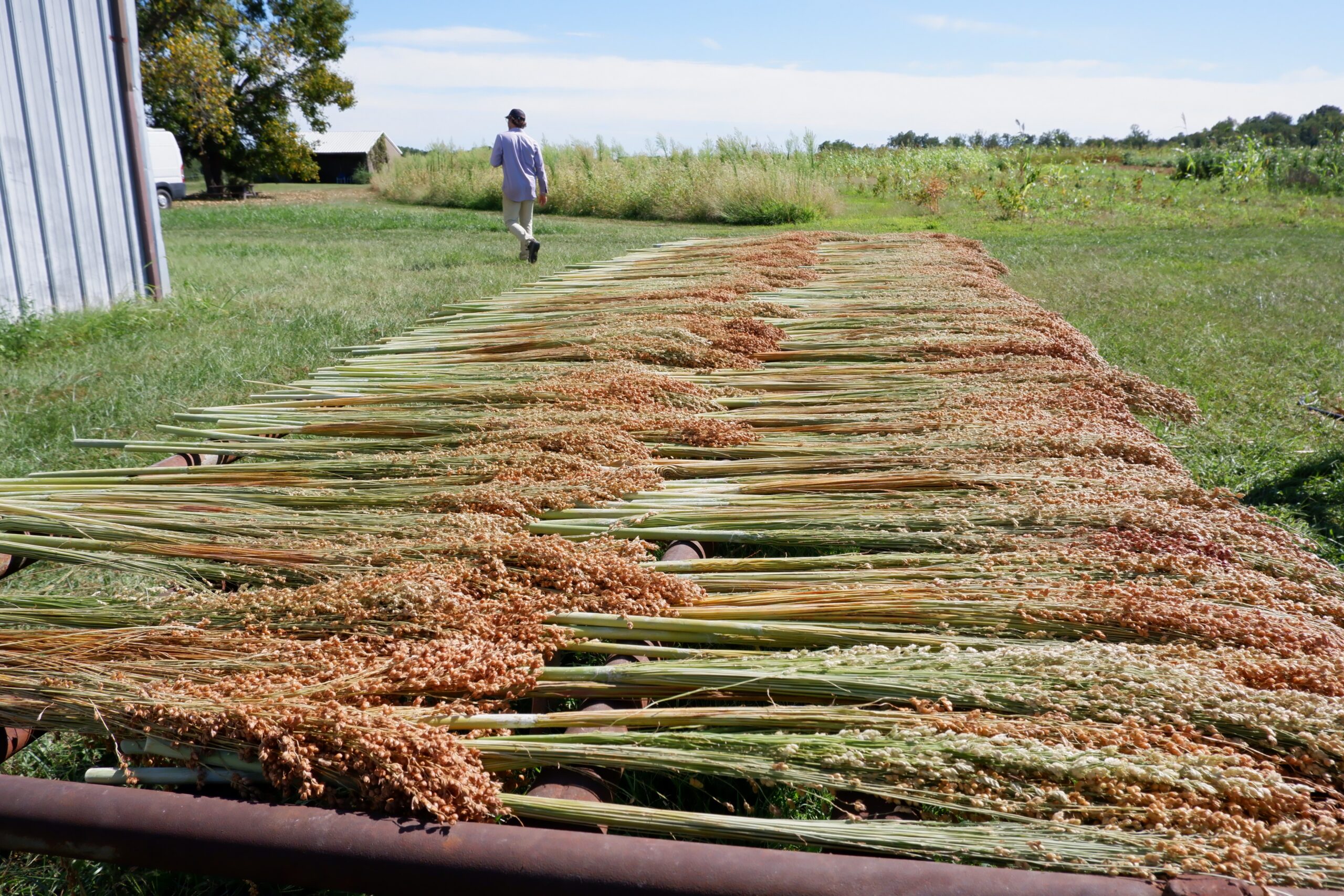Bundle Sticks Farm is a working farm & education site.
There are four key elements:
FARMING:
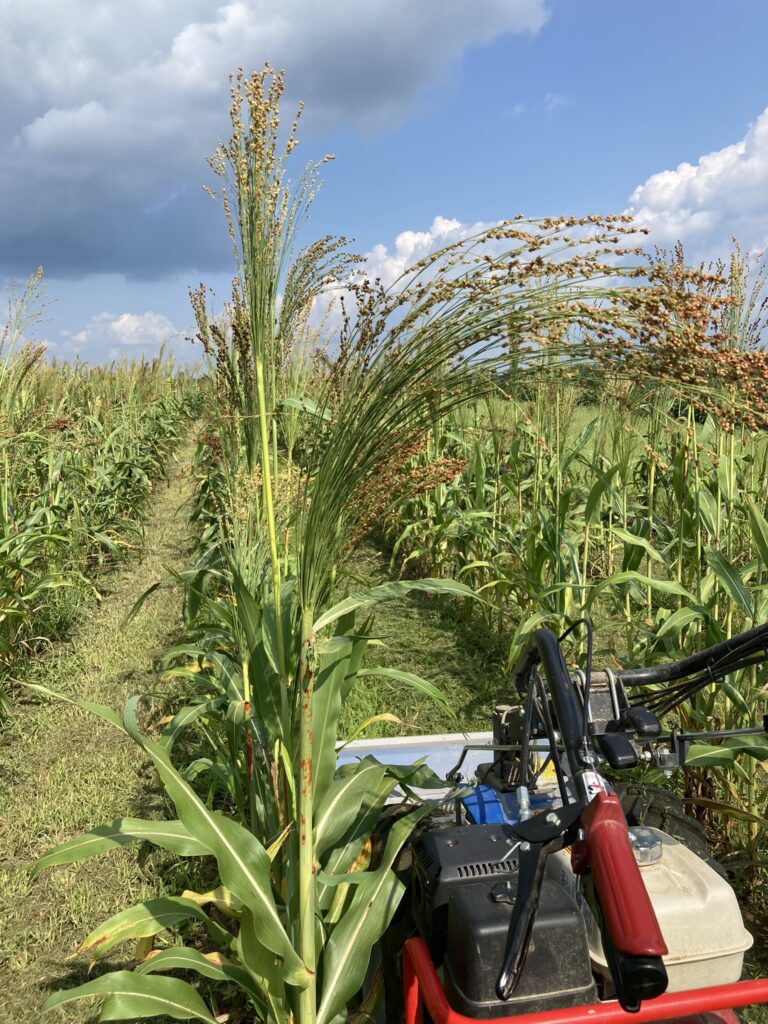
We are farming the land in a sustainable, holistic manner, focused on the production and post-harvest handling of an abundance of quality craft materials including broomcorn for brooms, flowers for wreaths and dried arrangements, willows for basketry and structures, and wool. We also have u-pick flowers and a fresh flower CSA.
Key farming practices at Bundle Sticks include:
Strip tillage & minimal soil disturbance, crop-livestock integration, perennial hedgerows & windbreaks, silvopasture plantings, and using only organic inputs.
CRAFTING:
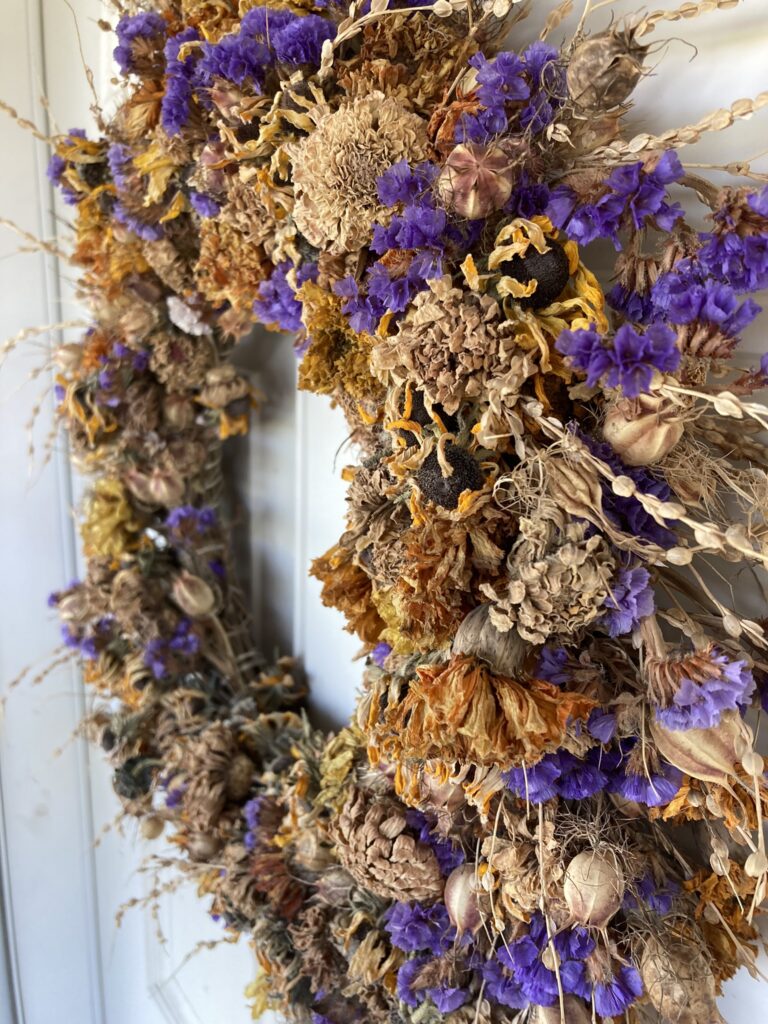
We produce brooms, wreaths, and other crafts for sale and offer programs to teach craftwork and connect people to land through craft.
Most of our craft programs are on-farm but we also do demonstrations at community events.
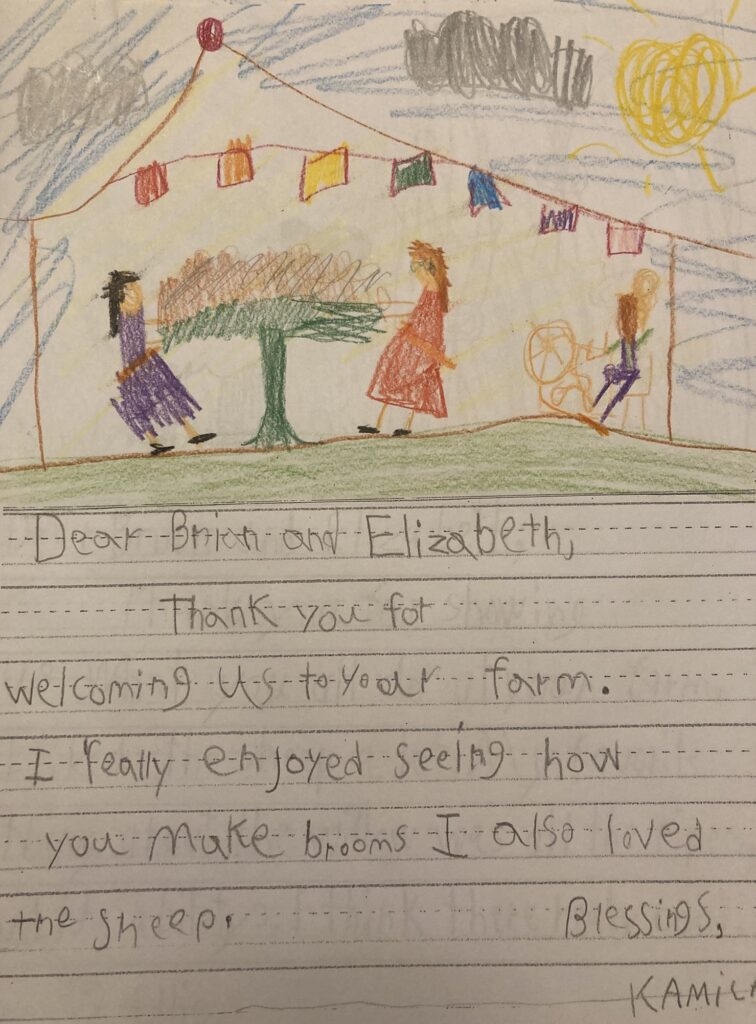
PUBLIC EVENTS:
We offer workshops, volunteer days, and other social and educational activities, to foster a sense of place and connection to community through our farm-based non-profit, Farm Craft Connect. If you are an educator or part of a group that might like to spend time with us farming and crafting, please be in touch! (email hello@bundlesticksfarm.org).
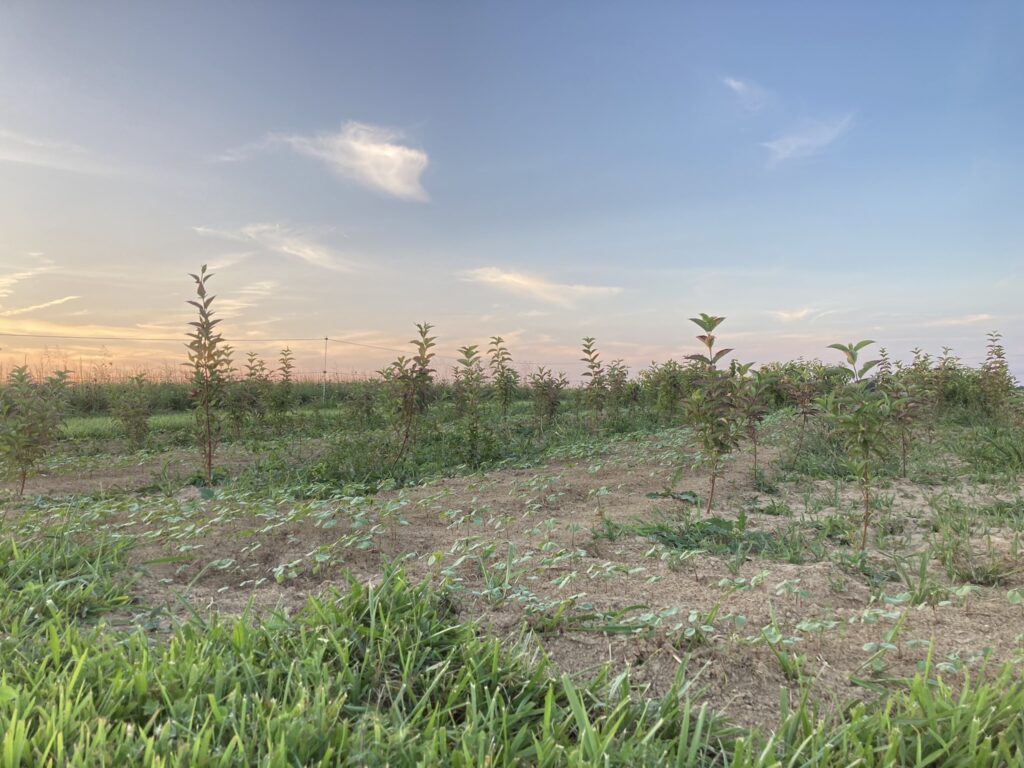
BIODIVERSITY:
We are increasing biodiversity on the landscape through the inclusion of native plant communities and farming practices like crop-livestock integration and agroforestry.
Our small native plant nursery sells plants in May and October.
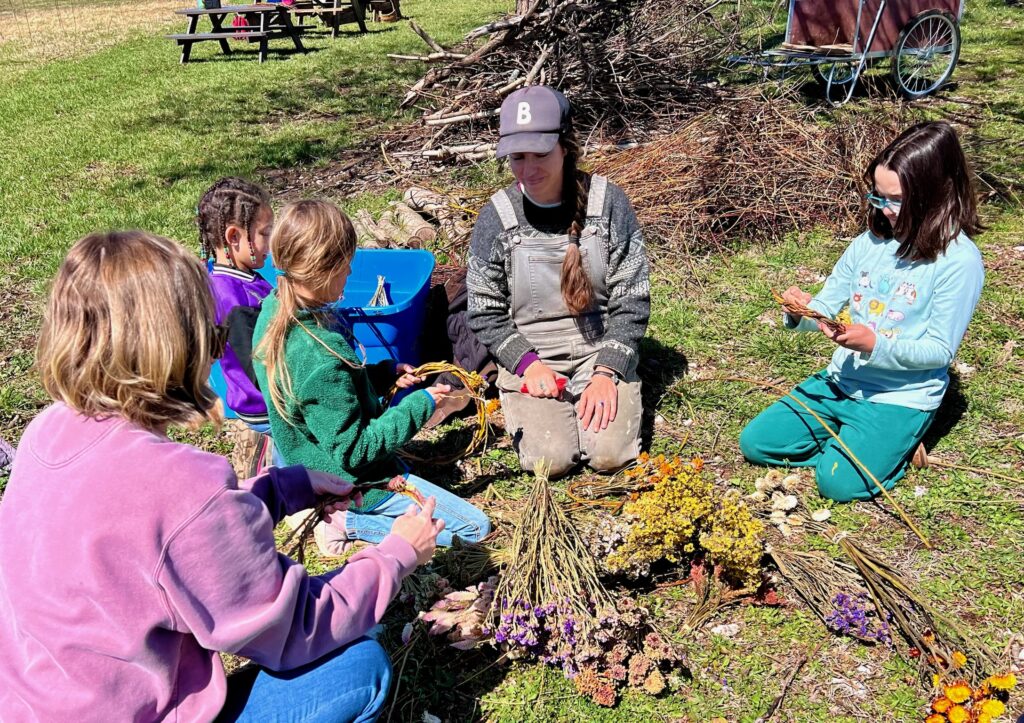
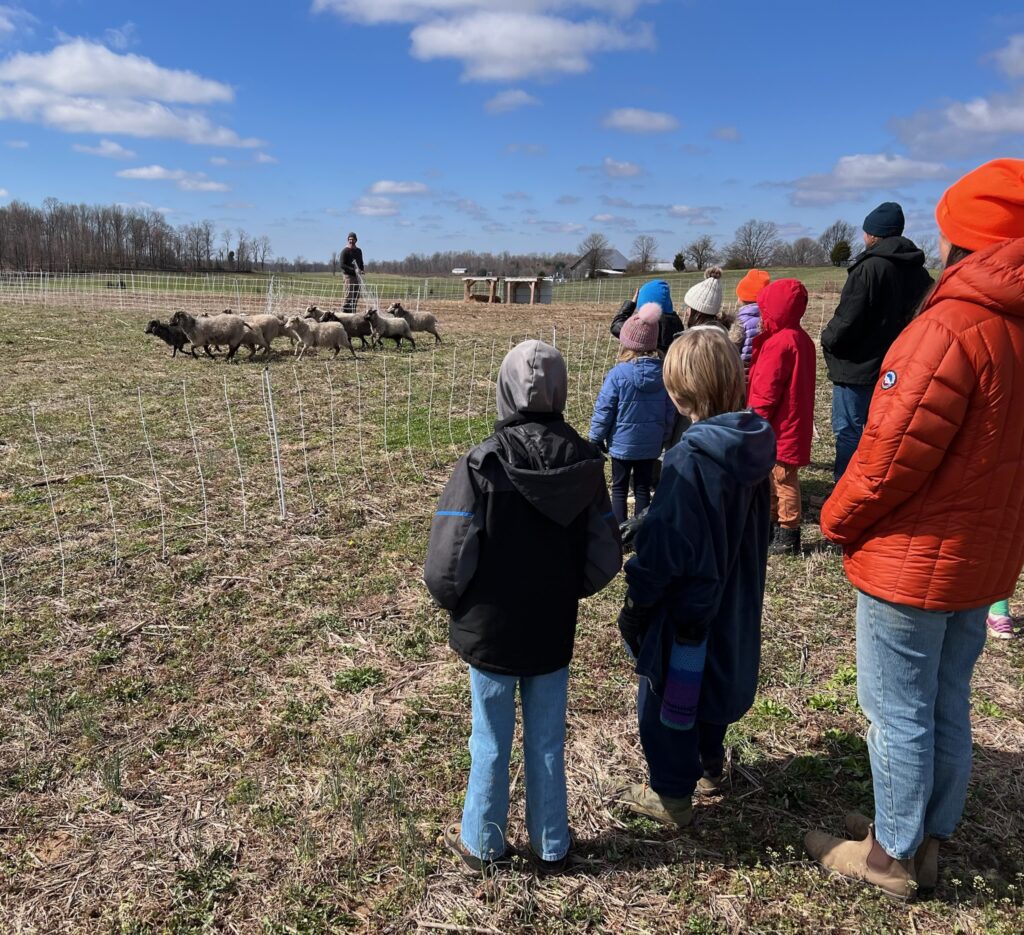
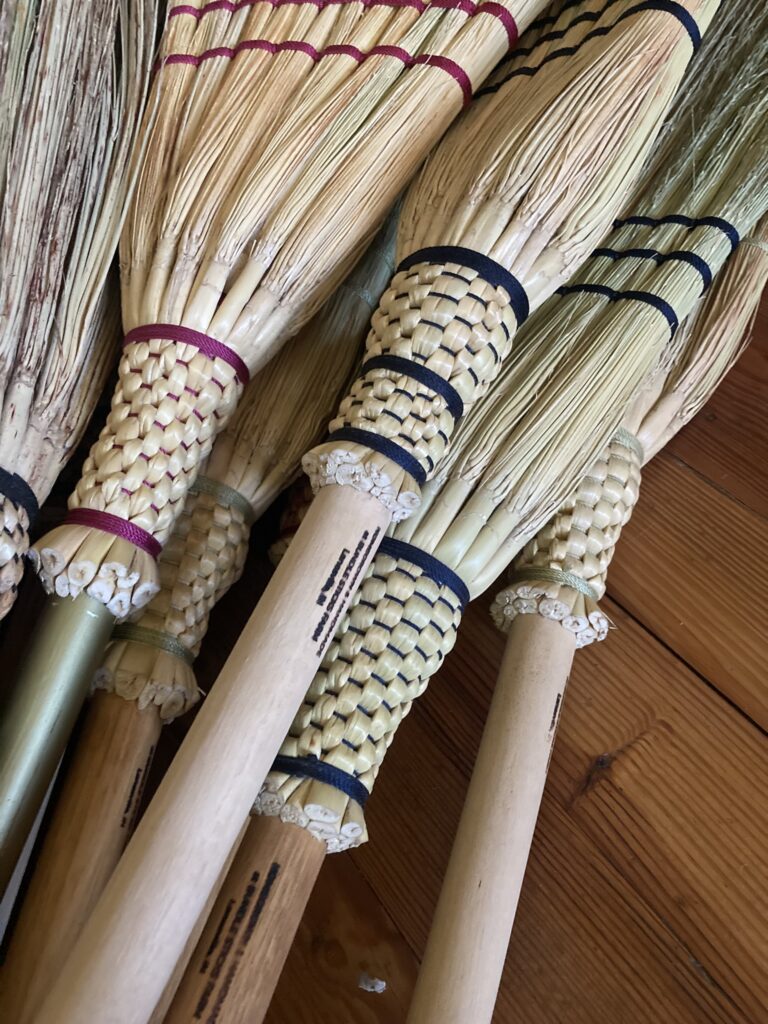
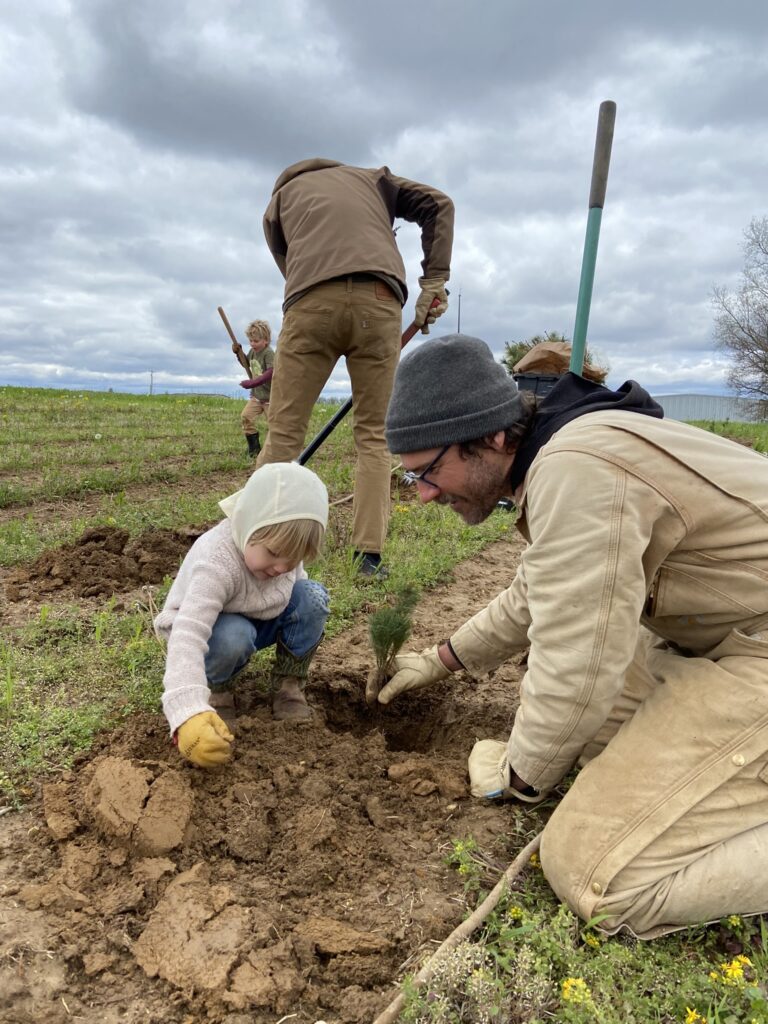
FARM. CRAFT. CONNECT.
meet the co-founders & resident farmer-crafters:
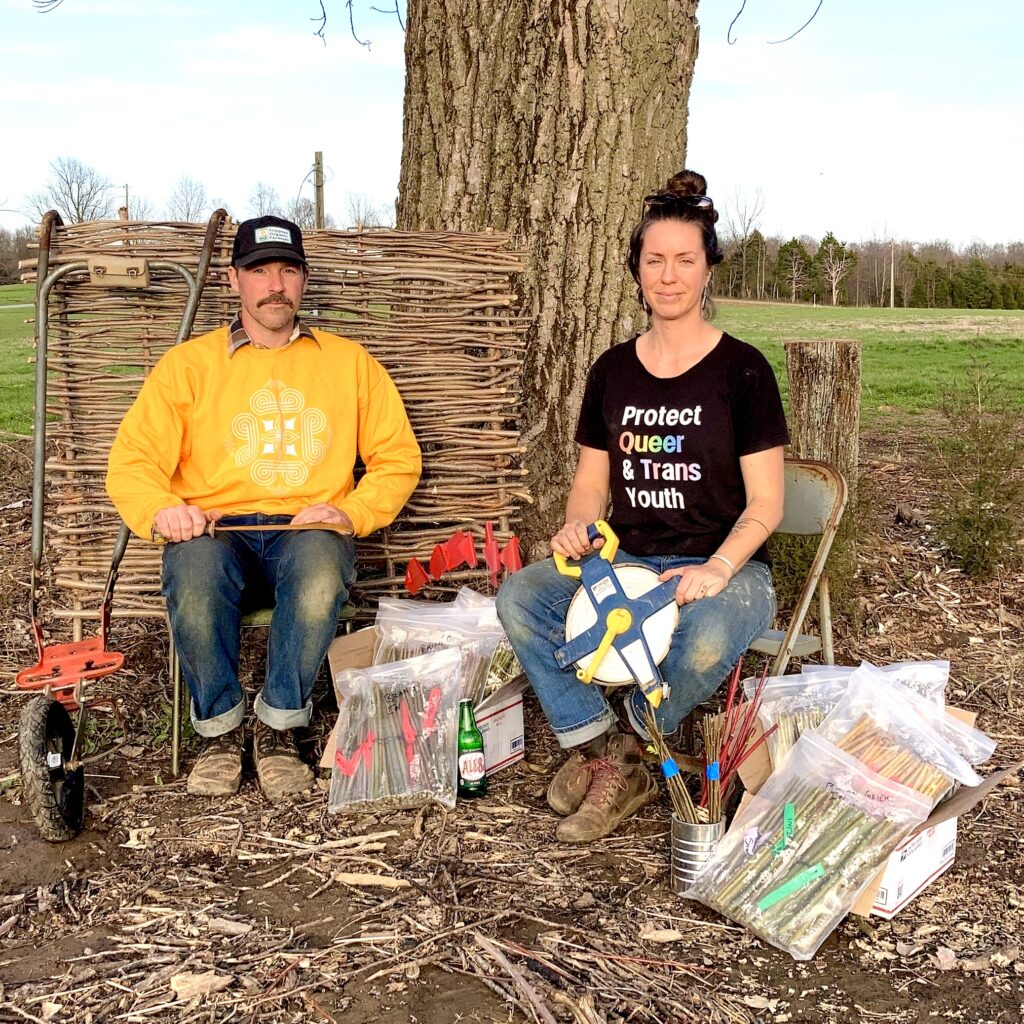
At right: Elizabeth (she/her) is a crafter-of-many-trades, a skilled facilitator and communicator, and an unwavering social justice advocate. She grew up unschooled on a small family farm in Oregon and her family’s history includes California cattle ranching and Bay-area artists and craftspeople, both legacies that live on in her today.
At left: Brian (he/him) is a history nerd, former professional sauerkraut maker, and passionate farmer who will always say yes to getting in water. He grew up in the woods of Wayne County, Indiana, and is largely of German descent with a family tree that traces back to New Albany & Lanesville in the late 1800’s and to the Rhine River area in what is now Germany before that. His last name, Geier, means vulture in an old Germanic language, a fact that he is most proud of.
